Understanding Weak Nails
Weak nails can be a common concern for many individuals, often manifesting as brittleness, peeling, or breakage. Several factors contribute to this condition, including dietary deficiencies, environmental influences, and underlying health issues. Recognizing these elements is essential for developing effective treatment strategies.
One of the most significant contributors to weak nails is poor nutrition. A diet lacking in essential vitamins and minerals, particularly biotin, zinc, and iron, can impede nail health. Biotin, a B-complex vitamin, plays a critical role in strengthening the keratin structure of nails. It is often recommended to include foods rich in biotin such as eggs, nuts, and legumes to promote strong nails. Similarly, iron deficiency can lead to brittle nails that may chip or break easily. Incorporating iron-rich foods like red meat, spinach, and beans can be beneficial.
Environmental factors also play a significant role in nail weakness. Frequent exposure to harsh chemicals, excessive moisture, or prolonged use of nail products can weaken the nails over time. Activities such as frequent hand washing without moisturizing can lead to dry, brittle nails. The climate can also affect nail strength; extreme cold or heat may cause nails to become fragile. Employing protective measures, such as using gloves for household tasks and staying hydrated, can help mitigate these effects.
Additionally, certain medical conditions may predispose individuals to weak nails. Conditions such as hypothyroidism, psoriasis, and fungal infections can lead to structural changes in the nails, making them more susceptible to damage. It is crucial for individuals experiencing persistent nail weakness to consult with a healthcare professional for an accurate diagnosis and tailored treatment plan.
Signs of Weak Nails
Weak nails can manifest in various ways, and recognizing these signs is crucial in addressing the underlying issues that contribute to their condition. A common indicator of weak nails is peeling, where layers of the nail plate begin to separate and flake off. This not only affects the appearance of the nails but can also lead to further damage if left untreated. Peeling may be caused by environmental factors, such as frequent exposure to water or harsh chemicals, and can signal the need for protective measures.
Another prevalent sign of weak nails is splitting. This occurs when the nail plate develops cracks or fissures, often leading to discomfort and an increased risk of infection. Splitting can be exacerbated by excessive nail trimming, improper filing techniques, or using nails as tools, ultimately weakening their structure. It is essential to observe these symptoms carefully, as they may indicate that the nails are not receiving adequate care or nutrition.
Softness is also a notable sign of weak nails. Healthy nails typically exhibit a firm texture, while soft nails may bend or break easily under pressure. This can be a result of overexposure to moisture, particularly from prolonged use of nail polish removers or frequent handwashing. Additionally, certain nutritional deficiencies, particularly in biotin, zinc, or protein, can lead to a softening of the nails. Recognizing these signs is integral to understanding when your nails require extra attention and intervention.
In conclusion, being aware of the signs of weak nails, such as peeling, splitting, and softness, allows individuals to take proactive measures in maintaining nail health. Early intervention can significantly improve the strength and resilience of nails, thereby preventing further damage.
The Importance of Nutrition for Nail Health
The health of our nails is often a reflection of our overall well-being, and one of the most significant contributing factors is nutrition. A balanced diet rich in essential nutrients plays a crucial role in strengthening weak nails and promoting their growth. Understanding the vital vitamins, minerals, and proteins required for optimal nail health can help individuals make informed dietary choices.
Biotin, also known as vitamin B7, is particularly important for maintaining strong nails. Studies indicate that biotin supplementation can lead to improved nail thickness and minimize brittleness. Foods high in biotin include eggs, nuts, whole grains, and leafy greens. Including these items in your diet may enhance nail resilience and durability.
Proteins, the building blocks of our body, are equally essential for nail growth. Keratin, a type of protein, is the primary component of nails, and adequate protein intake is necessary to support keratin production. Source good-quality proteins from lean meats, fish, beans, nuts, and dairy products to help promote healthy nail formation.
Vitamins and minerals such as vitamin E, zinc, and iron also play pivotal roles in nail health. Vitamin E acts as an antioxidant, helping to maintain proper blood circulation and reduce oxidative stress on the nails. Zinc is vital for new cell production, while iron aids in delivering oxygen to the nail beds. To obtain these nutrients, consider incorporating foods like spinach, pumpkin seeds, seafood, and red meat into your meals.
A well-rounded diet that includes an array of vitamins, minerals, and proteins contributes significantly to the strength and appearance of nails. By prioritizing proper nutrition, individuals can support their nail health effectively, minimizing the chances of brittleness and breakage, and ultimately achieving stronger, healthier nails.
Home Remedies to Strengthen Weak Nails
Weak nails can be a common issue for many individuals, leading to a desire for effective home remedies. Several natural ingredients possess properties that may promote nail strength and health. Here are some notable home remedies to consider.
One of the simplest yet effective remedies is using olive oil. Rich in antioxidants and vitamin E, it nourishes nails and cuticles. To utilize olive oil, soak your nails in warm olive oil for about 15 to 20 minutes, a few times a week. This process helps to hydrate and strengthen the nail structure.
Coconut oil is another excellent option due to its antifungal properties and ability to penetrate the nail bed. Warm a small amount of coconut oil and massage it into your nails and cuticles daily. This not only enhances moisture but also promotes healthier nail growth over time.
Lemon juice works wonders as a natural nail strengthener. Thanks to its high vitamin C content, it can help to reduce brittleness. Mix equal parts of lemon juice and olive oil, apply the mixture onto your nails, and leave it on for about 30 minutes before rinsing off. This remedy may add shine to your nails while reinforcing their strength.
Essential oils can also be beneficial for nail health. Some people find tea tree oil effective due to its antimicrobial properties. Combine a few drops of tea tree oil with a carrier oil, such as jojoba oil. Apply this blend to your nails and allow it to absorb to enhance both strength and safety from fungal infections.
Incorporating these home remedies into your nail care routine can greatly improve the condition of weak nails, promoting not only strength but also overall nail health. Regular application may yield significant results over time, providing a natural solution to strengthen your nails.
DIY Nail Soaks
Dedicating time to DIY nail soaks is an effective approach to nourish and strengthen weak nails. These soaks can be prepared using common household ingredients, providing an economical and natural solution for brittle nails. Below are some popular recipes that can help improve nail health.
One of the most popular recipes combines warm water, olive oil, and lemon juice. Begin by mixing two tablespoons of olive oil and one tablespoon of fresh lemon juice into a bowl of warm water. Soaking your nails in this solution for 15-20 minutes allows the olive oil to moisturize and strengthen while the lemon juice helps to brighten and lighten any discoloration. This treatment can be repeated two to three times a week for optimal results.
Another potent nail soak utilizes a combination of coconut oil and vitamin E. Using equal parts of warm coconut oil and vitamin E oil, soak your nails for approximately 20 minutes. Coconut oil is renowned for its deep moisturizing properties, while vitamin E is well-regarded for enhancing the overall resilience of the nails. This soak can provide a boost in strength and encourage healthy growth.
A soothing soak made from chamomile tea can also be beneficial. Steep two chamomile tea bags in a cup of hot water, allowing it to cool to a comfortable temperature. After cooling down, soak your nails for 15 minutes. Chamomile is known for its anti-inflammatory properties, making it an excellent choice for promoting both nail and cuticle health.
When employing any of these DIY nail soaks, consistency is key. Incorporating these treatments into your regular self-care routine, alongside a balanced diet rich in vitamins and minerals, can lead to significant improvements in nail strength and appearance. As you work towards strengthening your nails, integrating these soaks will serve as a beneficial addition to your regimen.
Importance of Hydration
Hydration plays a vital role in maintaining overall health, including the health of our nails. The human body, which is comprised of approximately 60% water, relies heavily on water to fulfill its various physiological functions. Adequate water intake not only supports bodily systems but also contributes to the integrity and appearance of the nails. Weak and brittle nails can often be an external manifestation of insufficient hydration.
When the body lacks adequate water, it can result in dehydration, leading to a number of adverse effects, including dry, brittle nails that are more susceptible to breakage. Just as skin needs moisture to remain supple, nails also require a certain level of hydration to maintain their strength and resilience. Water helps to maintain cellular health and facilitates the delivery of essential nutrients to the nails, promoting growth and preventing the onset of conditions such as brittleness or splitting.
Furthermore, hydration aids in the production of keratin, a vital protein that forms the structural foundation of nails. Proper water intake encourages optimal cell function, allowing nails to retain their natural hardness and flexibility. Foods with high water content, such as fruits and vegetables, can also supplement hydration and provide additional vitamins and minerals essential for nail health.
It is recommended that adults consume an adequate amount of water daily, typically around eight 8-ounce glasses, though individual needs may vary based on factors such as activity level and climate. By prioritizing hydration, individuals can significantly improve the condition of their nails and reduce the risks associated with weakness and damage, ultimately leading to healthier and more vibrant nails.
Avoiding Harsh Chemicals
Maintaining the health of your nails is crucial, particularly for individuals with weak or brittle nails. One of the common issues affecting nail integrity is exposure to harsh chemicals often found in household products and nail care items. Many nail polishes, removers, and even cleaning substances contain aggressive ingredients that can lead to further weakening of your nails, making it essential to identify and avoid these harmful elements.
Some well-known culprits in nail care products include formaldehyde, toluene, and dibutyl phthalate (DBP). Formaldehyde is commonly used in nail hardeners but can cause significant damage, leading to dryness and brittleness. Toluene, often found in nail polish and remover, can cause thinning and peeling. DBP is frequently added for flexibility but is associated with potential health risks and may weaken the nails over time.
When selecting nail care products, it is advisable to opt for those labeled as “3-free,” “5-free,” or even “7-free,” as these formulations typically omit the most harmful chemicals. Additionally, choosing products that are labeled as non-toxic or organic can provide a safer alternative. For nail polish removers, consider using acetone-free options or natural oils that can effectively remove polish without causing excessive damage.
In terms of household cleaning products, many contain bleach, strong surfactants, and petrochemicals that can have adverse effects on your nails. Where possible, consider using natural cleaners made from vinegar, baking soda, or essential oils. These alternatives are effective in cleaning your home while being significantly less harsh on both your nails and overall health.
By making informed choices about the products you use on your nails and in your home, you can help preserve their strength and health. Eliminating harsh chemicals from your nail care routine is an essential step toward achieving stronger, healthier nails.
Proper Nail Care Practices
Nail care is essential for maintaining healthy and resilient nails. Proper practices can significantly reduce the risks associated with weak or brittle nails. One of the most fundamental steps in nail care is regular filing. When filing nails, it is advisable to do so in one direction, rather than a back-and-forth motion. This technique prevents splitting and further weakening of the nails. Using a fine-grit file can help create a smooth edge and minimize the chances of snagging.
Additionally, trimming nails correctly is paramount for nail health. It is best to use sharp, high-quality nail clippers or scissors to achieve a clean cut. It is recommended to trim nails straight across and round the edges slightly. This method protects against ingrown nails and allows for even growth. Care should be taken not to cut the nails too short, as this can lead to pain and increased fragility.
Moisturizing is another critical aspect of nail care that should not be overlooked. Cuticles, often neglected, play a vital role in protecting the nail matrix and overall nail strength. Regularly applying a nourishing cuticle oil or cream can enhance hydration, preventing dryness and cracking. It is beneficial to massage the oil into both the cuticles and the surrounding skin, as this may promote circulation and further encourage nail growth.
Furthermore, maintaining overall nail health extends beyond these practices. Ensuring a balanced diet rich in vitamins and minerals, such as biotin and zinc, can greatly enhance nail strength from the inside out. Staying hydrated is equally vital, as it supports the body’s natural moisture levels. By integrating these proper nail care practices into daily routines, individuals can effectively strengthen weak nails and promote healthier growth over time.
Protecting Your Nails from Environmental Factors
Nails, while often overlooked, play a significant role in the overall health and appearance of one’s hands. However, they are susceptible to various environmental factors that can weaken their structure and compromise their integrity. Weather conditions, workplace hazards, and exposure to water are some of the most impacting elements that can lead to weak nails.
Cold weather and low humidity can cause nails to become brittle and prone to breaking. In contrast, prolonged exposure to hot, humid conditions may lead to softening of the nail, making it vulnerable to damage. Therefore, it is advisable to protect nails by applying a moisturizing lotion or cuticle oil regularly, particularly after washing hands or exposure to water. This ensures that the nails retain moisture and remain strong.
Work-related hazards also contribute significantly to nail deterioration. For individuals engaged in manual labor or occupations that involve frequent use of hands, such as in construction or culinary fields, nails may suffer from impacts or abrasions. Utilizing gloves can significantly reduce this risk. Wearing protective gloves made of rubber or vinyl while performing tasks that involve harsh chemicals or exposure to water can also enhance nail health and prevent weakening due to environmental stressors.
Another factor to consider is water exposure. Frequent hand washing, as well as activities like swimming, can lead to excessive moisture, compromising nail strength. To combat this, it is advisable to keep hands dry when possible, and reap the benefits of using a barrier cream or ointment that can provide extra protection against moisture loss and damage. By adopting these preventative measures, individuals can effectively safeguard their nails from various environmental factors, ultimately promoting stronger and healthier nails.
Professional Treatments for Weak Nails
Weak nails can be a source of frustration for many individuals. Fortunately, a variety of professional treatments are available that target nail strength and health. These treatments range from nutritional supplements to topical applications, each designed to address the specific causes of weak nails.
One of the most common professional treatments involves biotin supplementation. Biotin, a B-vitamin, has been shown to improve nail strength in several studies. When taken regularly, biotin can enhance the thickness and overall resilience of nails. Healthcare providers often recommend a daily dosage, typically ranging between 2.5 to 10 mg, to achieve noticeable results over several months. It is crucial to consult a healthcare professional before beginning any new supplement regimen to ensure safety and appropriate dosage.
In addition to supplements, topical treatments have gained popularity for strengthening weak nails. Many formulations are designed specifically for this purpose, containing ingredients such as keratin, proteins, and moisturizing agents. These products work by enhancing the nail’s structure while providing hydration to prevent brittleness. They can be applied directly to the nails or cuticles, often used in conjunction with a nail care routine to promote long-term health. Regular use of such treatments may lead to improved nail appearance and strength over time.
Moreover, there are specialized nail strengthening products on the market that serve as both treatments and preventative measures. These may include nail hardeners and fortified base coats that create a protective layer against environmental stressors. Professional manicurists often recommend these products for individuals with weak nails, advising them on the best application methods to maximize effectiveness.
In conclusion, while weak nails can be challenging, professional treatments such as biotin supplements, topical treatments, and specialized strengthening products offer viable solutions to enhance nail health and resilience. Regular consultation with healthcare providers can further optimize results, ensuring a tailored approach to individual needs.
Consulting a Dermatologist
For individuals experiencing persistent nail issues, consulting a dermatologist can play a crucial role in identifying and addressing underlying conditions affecting nail health. Dermatologists are specialized medical professionals who can provide invaluable insights into various nail disorders, whether they stem from environmental factors, nutritional deficiencies, or other health concerns. A proper consultation is often the first step toward stronger, healthier nails.
During a typical consultation, patients can expect to undergo a comprehensive assessment. The dermatologist will begin by reviewing the patient’s medical history, including any relevant lifestyle factors such as diet, nail care habits, and exposure to chemicals or potential allergens. This initial review helps in constructing a clearer picture of the patient’s nail health. The dermatologist will likely perform a physical examination of the nails, evaluating their texture, color, and overall condition. In some cases, additional diagnostic tests may be requested to determine if an underlying systemic condition is contributing to the issues.
One of the primary benefits of consulting a dermatologist is access to tailored treatment recommendations. Depending on the diagnosis, the dermatologist may prescribe topical treatments or oral medications to address fungal infections, skin conditions, or other nail disorders. Moreover, they can recommend lifestyle adjustments, such as dietary changes or suitable nail care practices, for improved nail fortification.
In addition to treatment options, dermatologists can provide guidance on preventive measures to avoid future nail problems. This holistic approach ensures that patients not only treat existing conditions but also develop strategies to maintain healthy nails long-term. Therefore, if nail persistence issues arise, seeking professional advice from a dermatologist is a prudent step for anyone concerned about their nail health.
The Role of Supplements
When it comes to strengthening weak nails, dietary supplements can play a pivotal role. Among the most recognized supplements are biotin and collagen, both of which have gained popularity due to their potential benefits for nail health. Biotin, a B-vitamin, is essential for the metabolism of fats and amino acids, which directly contributes to the structure and strength of nails. Several studies have shown that biotin supplementation can significantly improve nail thickness and reduce brittleness, leading to healthier and stronger nails. Typically, a dosage of 2.5 mg of biotin per day is considered effective for promoting nail growth.
Collagen, on the other hand, is a protein that constitutes a significant part of our nails, skin, and hair. Taking collagen supplements may help enhance nail strength and promote growth by providing the necessary amino acids that support the structural integrity of nails. Research has indicated that consuming approximately 2.5 to 15 grams of collagen per day can yield positive results in terms of nail quality and overall appearance.
While these supplements are generally safe, it is important to consider potential side effects. Biotin is water-soluble, and excessive intake is rare; however, as with any supplement, it may interact with certain medications. Collagen supplements are typically well-tolerated, but individuals with allergies to fish or eggs should exercise caution, particularly if the collagen source is derived from these products. Prior to starting any supplement regimen, consulting with a healthcare provider is recommended to determine appropriate dosages and ensure the supplements align with individual health needs.
Incorporating such supplements into a balanced diet can complement other approaches to maintaining healthy nails, but they should not be viewed as a standalone solution. Taking a holistic approach that includes a nutritional diet rich in vitamins and minerals, alongside the use of supplements, is crucial for optimal nail health.
Nail Care Products to Try
When dealing with weak nails, choosing the right nail care products is essential for promoting strength and resilience. Various strengthening polishes, fortifiers, and serums are available on the market that cater specifically to this concern. These products not only enhance the appearance of nails but also work to improve their overall health.
One popular category of products is strengthening polishes. These formulations often contain ingredients designed to fortify the structural integrity of nails. Look for products that include proteins such as keratin and collagen, which can help reinforce weak nails. Brands like OPI and Sally Hansen offer nail strengthening treatments that have garnered positive reviews for their effectiveness in promoting nail growth and durability.
Fortifying nail treatments are another excellent option for those looking to strengthen their nails. Typically available as base coats, these products are enriched with vitamins and minerals that penetrate the nail and aid in repair. A highly recommended product is the Orly Nail Defense, which features a blend of calcium and protein to provide robust support to nails prone to breaking.
Serums focused on nail health have also emerged as a desirable option. These concentrated formulations are often applied directly to the nails and skin around them, delivering hydration and nourishment where needed most. One notable serum is the Nail Repair by Mavala, known for its ability to strengthen and nourish weak, brittle nails. Users have reported noticeable improvements in their nail condition after consistent use.
In conclusion, testing various nail care products such as strengthening polishes, fortifiers, and serums may be a worthwhile investment for those struggling with weak nails. Through careful selection and application of these products, it is possible to enhance nail strength and resilience over time, paving the way for healthier and more beautiful nails.
Lifestyle Changes for Better Nail Health
Improving nail strength and overall health can often be achieved through various lifestyle changes that promote better nail care. One of the primary contributors to nail weakness is stress. High stress levels can lead to habits such as nail biting, which can severely impact the strength of your nails. Incorporating stress-reducing techniques such as mindfulness, meditation, or yoga can help mitigate these effects. Regular practice of these techniques not only benefits your mental health but also supports nail strength indirectly by decreasing the likelihood of harmful habits.
In addition, regular physical exercise plays a significant role in enhancing overall health, including nail health. Exercise boosts circulation, which can improve the delivery of essential nutrients to your nails. Engaging in activities that you enjoy, whether it be walking, swimming, or dancing, contributes to better blood flow and, subsequently, healthier nails. Aim for at least 150 minutes of moderate aerobic activity each week to harness the benefits of regular exercise.
Furthermore, it is crucial to protect your nails from prolonged exposure to harsh chemicals and substances. Common household cleaners, detergents, and solvents can weaken and damage nails when exposed for extended periods. To prevent this, consider wearing gloves while cleaning or performing tasks that require exposure to these substances. Additionally, maintaining proper hydration is essential for nail health. Drinking adequate amounts of water daily can help keep your nails moisturized and less prone to brittleness. Incorporating a balanced diet rich in vitamins and minerals, particularly biotin, zinc, and iron, further supports your efforts to strengthen your nails. By adopting these lifestyle changes, you can significantly improve the health and resilience of your nails.
Myths About Nail Care
Nail care is surrounded by a variety of myths that can often lead to misconceptions regarding nail health and maintenance. One common myth is that nails need to breathe. This idea implies that nails, much like skin, require a supply of oxygen. However, nails are composed of keratin, a protein that does not require any air exchange through the nail plate. Keeping nails polished does not hinder their health; thus, it is unnecessary to forgo nail polish for any supposed health benefits.
Another prevalent myth is that cutting or filing nails in a certain way will prevent them from growing thicker or stronger. In reality, the strength and thickness of nails are primarily determined by genetics and overall health, not by external shaping methods. Regular trimming is essential for maintaining nail length and preventing breakage, but it does not influence growth patterns or stability. Strengthening weak nails often requires a dedicated approach involving good nutrition and proper care rather than solely focusing on trimming techniques.
Additionally, some individuals believe that using acrylic or gel nails damages the natural nail. While improper application and removal of these enhancements can lead to temporary weakening, when done correctly, these nail treatments do not inherently harm healthy nails. The key is to seek the assistance of a trained professional who follows proper protocols for application and removal.
Finally, it is a common misconception that nails should be exposed to water for extended periods to maintain hydration. While keeping nails clean is important, excessive exposure to water can actually lead to brittleness and weakening. Instead, using moisturizing creams and oils specifically designed for nail care can help maintain the integrity and health of both the nails and the surrounding skin. Understanding these myths can help individuals make informed decisions about their nail care routines.
Nail Growth Cycles
Nails are a fascinating aspect of human anatomy, comprising a hard protein called keratin, which is also found in hair and skin. The process of nail growth is intricate, involving several phases that are crucial for maintaining the health and appearance of the nails. Understanding these growth cycles can significantly inform better nail care routines, enabling individuals to adopt practices that support nail strength and growth.
Each nail undergoes a growth cycle that typically lasts between three to six months, depending on various factors such as age, health, and nutrition. The growth cycle can be divided into several distinct phases: the growth phase (anagen), a transitional phase (catagen), and the resting phase (telogen). During the anagen phase, nails grow actively from the nail matrix, which is located under the base of the nail. This is the most important phase for lengthening and strengthening the nails. Factors like adequate hydration, a balanced diet rich in biotin, and proper nail hygiene can all positively influence this phase.
Following the growth phase is the catagen phase, which is a brief transitional period where the growth of the nail stops. This phase usually lasts about two to three weeks. It is during this time that the nail matrix begins to shrink. Afterward, the nails enter the telogen phase, which is essentially a resting phase that can last for several weeks to months. During this phase, nails do not grow and may appear more brittle or prone to damage if not properly cared for.
To maximize nail growth and health, it is essential to understand these cycles and adapt care routines accordingly. Regular nourishment through diet, hydration, and avoiding harsh chemicals can help reinforce the growth cycle, making the nails more robust and less susceptible to issues. Awareness of the nail growth cycle is a crucial first step in establishing effective nail care practices.
Managing Nail Health Post-Treatment
Maintaining optimal nail health following professional treatments or home remedies is crucial for ensuring lasting results. After undergoing any procedure aimed at strengthening weak nails, individuals should adopt a comprehensive aftercare routine. This ongoing care not only helps to preserve the benefits obtained from treatments but also inhibits the recurrence of nail weakness or damage.
One primary aspect of managing nail health is maintaining proper moisture levels. After any nail treatment, it is essential to keep the nails and surrounding cuticles well-hydrated. Application of high-quality moisturizers or oils specifically designed for nails can significantly enhance their strength and flexibility. Ingredients such as jojoba oil, vitamin E oil, and shea butter are particularly beneficial in nourishing the nails and promoting healthy growth. Additionally, regular use of hand creams will prevent the skin around the nails from becoming dry and cracked, further supporting overall nail health.
Another key factor is avoiding exposure to harsh chemicals. Individuals should be cautious with household cleaning products, as many contain ingredients that can weaken nails. Wearing gloves while using these substances can provide an extra layer of protection. Furthermore, opting for gentle nail care products is advisable. Neglecting to use acetone-free nail polish removers, for instance, can help prevent additional damage.
Dietary considerations also play a vital role in maintaining nail health. Consuming a balanced diet rich in vitamins and minerals, particularly biotin, zinc, and protein, supports nail integrity. Consider incorporating foods such as nuts, whole grains, and leafy greens into one’s regular meals. Hydration is equally important, as adequate water intake facilitates overall nail health.
Finally, regular nail care practices should be established. Trimming nails consistently and avoiding excessive filing can prevent splitting and breakage. Reserving time for a weekly manicure can also provide an opportunity for inspection and maintenance, ensuring early detection of any potential issues.
By following a dedicated post-treatment regime that focuses on hydration, protection, nutrition, and regular care, individuals can successfully manage nail health and enjoy the lasting benefits of their chosen treatments.
Success Stories: From Weak to Strong Nails
The journey to achieving stronger, healthier nails is often filled with challenges and triumphs. Many individuals facing the struggle of weak nails have found solace and success through both home remedies and professional treatments. These personal tales illustrate not only the transformation of nail health but also the empowerment that comes with adopting effective solutions.
Consider the story of Lisa, a woman in her mid-thirties who had long battled brittle nails that broke at the slightest touch. Initially, she experimented with a variety of home remedies, including olive oil massages and biotin supplements. Lisa documented her progress in a personal blog, noting how consistency was key. After a few months of committed application of natural oils, she observed significant improvement in her nail strength and appearance. Her journey highlights the potential of patience and the effectiveness of holistic approaches.
Another inspiring example is that of Mark, a software engineer who struggled with nail health due to frequent exposure to harsh chemicals in his work environment. Seeking a more sustainable solution, Mark opted for professional treatments, including regular manicures that involved strengthening gel applications. His experience showcases how professional intervention complemented his commitment to care for his nails at home. Mark noted that a combination of expert advice and diligent maintenance led to noticeable growth and resilience in his nails.
Many individuals also turn to supportive communities to share insights. Online forums dedicated to nail health often feature success stories that inspire those facing similar challenges. These testimonials reveal varied paths taken—some relying solely on home remedies while others blend professional treatments with self-care. Ultimately, the common thread in these stories is the determination to overcome obstacles. The encouraging outcomes underscore the reality that with a tailored approach, it is indeed possible to transform weak nails into strong, vibrant ones.
Conclusion: Taking Charge of Your Nail Health
In our exploration of various methods to strengthen weak nails, it has become evident that a multifaceted approach yields the best results. Maintaining healthy nails involves not only adopting effective home remedies but also considering professional treatments when necessary. Simple practices such as moisturizing, following a balanced diet, and protecting the nails from harsh chemicals can significantly contribute to improved nail strength. Natural oils, vitamins, and supplements are also beneficial, as they provide essential nutrients that promote nail resilience.
Beyond home care, recognizing when to seek professional advice is crucial. A dermatologist or a certified nail technician can provide insight into underlying conditions affecting nail health. They can recommend treatments tailored to individual needs, which may include specialized nail products or therapies aimed at restoring strength and preventing further damage. Regular check-ups can help in addressing issues early, ensuring that your nails remain strong and healthy.
Additionally, understanding the impact of lifestyle choices on nail strength cannot be overstated. Stress management, proper nail hygiene, and minimizing exposure to harmful substances will foster an environment in which nails can thrive. Engaging in consistent self-care routines and educating oneself about nail health will empower individuals to take charge of their nail care.
Ultimately, improving weak nails requires a commitment to both personal care practices at home and professional guidance when necessary. By integrating these strategies, individuals can work towards achieving healthier, stronger nails that reflect their overall well-being. Taking proactive steps today will lead to the positive outcomes sought after in one’s nail health journey.
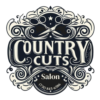
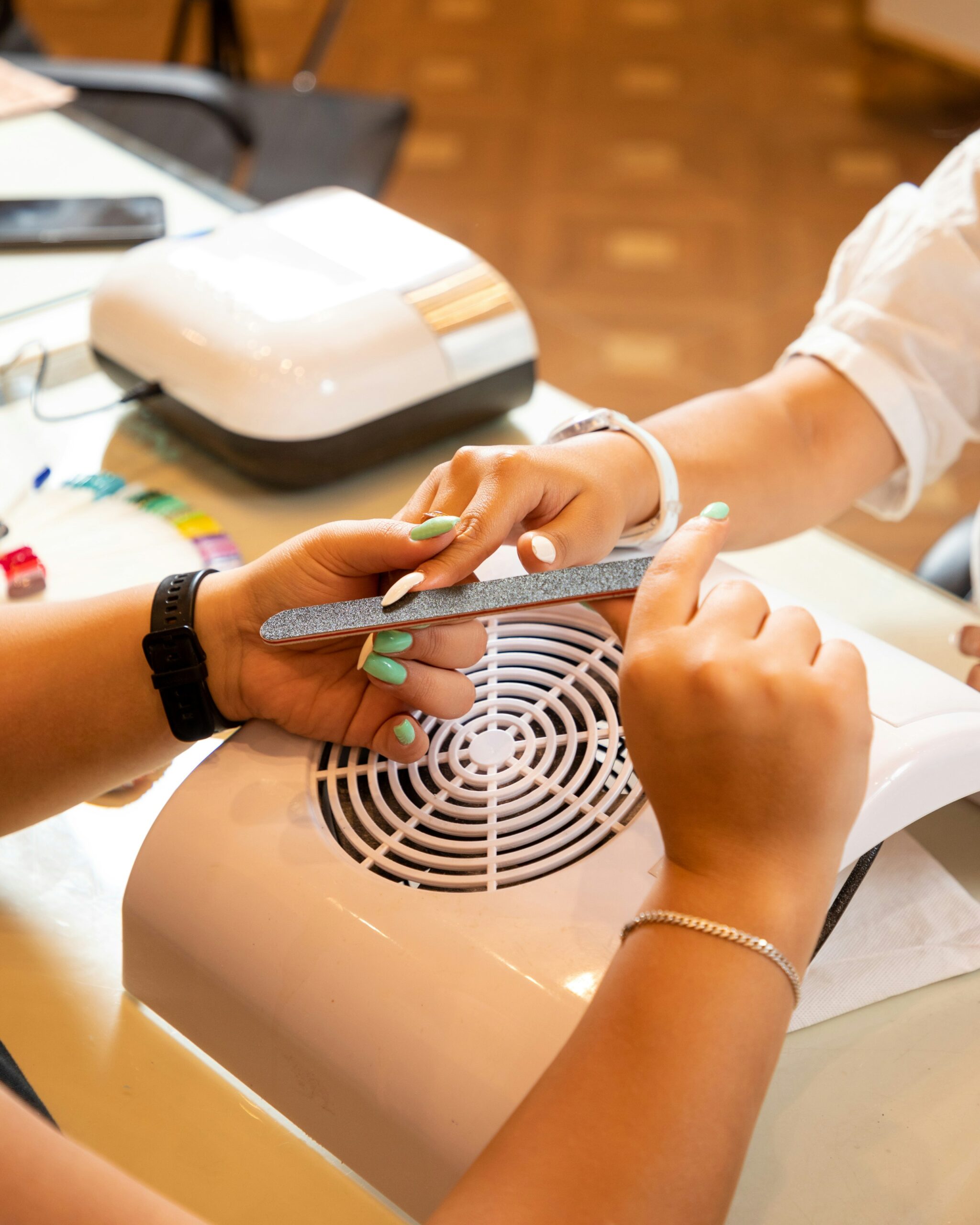
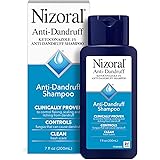
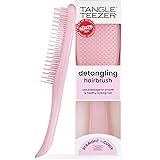
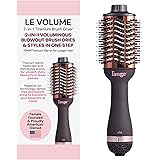
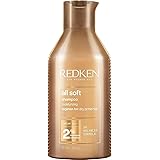
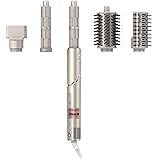
http://Jeffreywhaps
Работа стала спокойнее — специалисты по ВЭД всё контролируют и предупреждают возможные риски https://vsoprovozhdenie.ru/